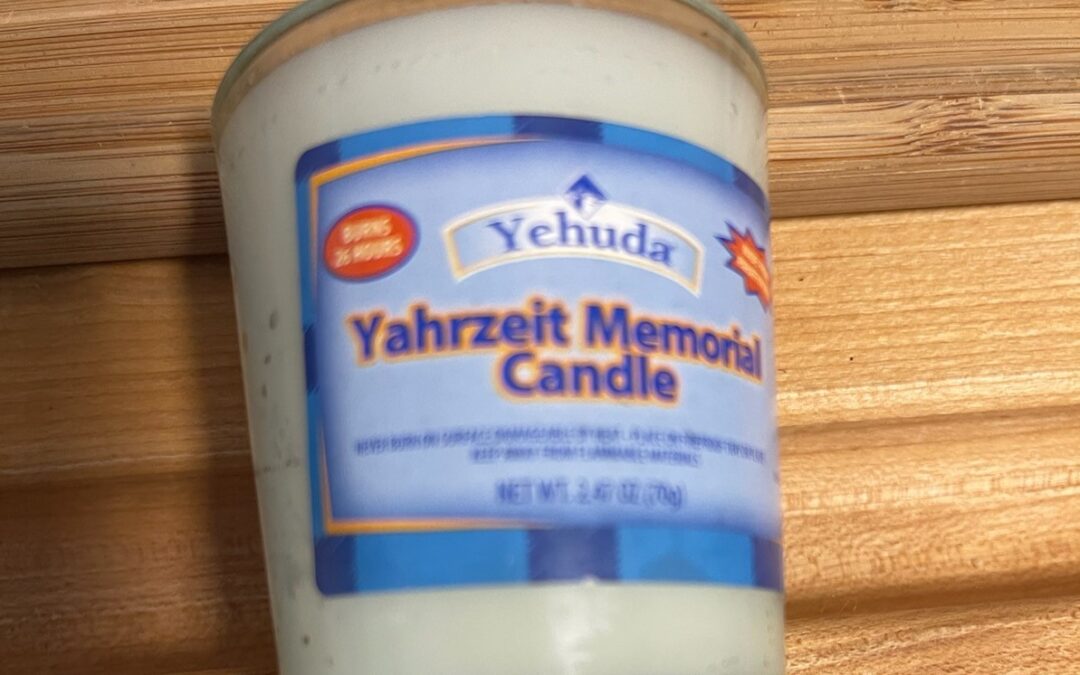Aninut | The Two Stages of Shiva | Shloshim | The First Year | Yahrzeit
According to Jewish custom, after the death of a loved one, family members and other mourners must go through a number of rituals and practices to fully express their grief and loss. There are specific time tables for these periods of mourning, and each carries its own requirements. It’s important to understand that, according to Jewish belief, those stages of mourning are not only to provide comfort and assistance to those left behind, but to the soul of the departed, as well. The mourning laws and traditions set forth in the Torah allow loved ones to honor the departed while facilitating their own personal healing.
Who Must Participate in the Five Stages of Mourning
The following family members must take part in the five stages of mourning set forth below: the spouse, son, daughter, brother, sister, father and mother of the deceased. All others can provide support, but are typically not participants in these stages of mourning.
What Are the Five Stages of Mourning?
When a loved one who is a member of the Jewish faith dies, mourners have five specific stages of grief or mourning:
- Aninut—The most intense mourning takes place in the immediate aftermath of death, before the burial. This time, known as Aninut, is typically marked by an all-consuming grief. The Torah, recognizing the paralyzing nature of this grief, allows first-degree relatives to be absolved from the observance of any mitzvah, or good deed/commandment that requires any action. It is also during this period that mourners typically perform the “K’riah,” or ritual tearing/rending of garments, most commonly as part of the funeral service. For the mourners, this is mostly a period of silence, so it’s not the right time to express your condolences.
- The Shiva—This 7-day period begins immediately after the burial, with the first three days of the Shiva involving the most intense expression of grief. Commonly, when the mourners arrive at the shiva home after the burial, they will receive a special meal of condolence. Hard-boiled eggs and bagels are typical fare at this meal, as their round shape symbolizes the cycle of life.
Mourners must remain in the shiva house for the entire week, but may receive visits from other family members and friends, who may participate with them in prayer. It is preferred that mourners sit shiva in the house of the deceased, so that all prayers and good deeds occur in his or her place. Mourners are prohibited from working for the entire period of shiva, and are generally banned from wearing leather shoes or other articles of clothing that reflect either vanity or comfort. In addition, mourners typically do not shave, cut their hair, bathe or shower during shiva, and must generally wear the same clothes for the entire period (usually the torn or rent garment from the funeral service). Mourners must also refrain from listening to music or enjoying other forms of entertainment or amusement during shiva.
- Shloshim—From the Hebrew word for “thirty,” Shloshim is a month-long period of mourning following the burial. After the initial 7-day period of shiva, mourners may go back to many of their daily activities, including returning to work. However, they must still avoid attending any parties, as well as listening to live music or taking part in any public entertainment, either as a participant or as a spectator.
Though shloshim ends the traditional formal period of mourning for parents, siblings and a spouses, children of the deceased must continue to recite the mourner’s Kaddish for another 11 months. It’s also fairly common for mourners to mark the end of shloshim with a public memorial service, where music may be played that would not have been a part of the funeral.
- The First Year and Yahrzeit—On the one-year anniversary of death, mourners will recite the Mourner’s Kaddish and burn a candle (the Yahrzeit candle) for 24 hours. The Yahrzeit candle will subsequently be lit each year on the anniversary of death.
Gutterman’s and Gutterman Warheit—Your Source of Comfort in Time of Loss
At Gutterman’s and Gutterman Warheit, we bring more than five generations of experience to individuals and families in the Jewish communities in New York and Florida, providing comprehensive guidance and counsel with all matters related to funeral and burial services. We handle every detail, from the memorial service to the selection of a monument or marker, the creation of a Yahrzeit calendar and even preparations for sitting Shiva. We will also work with the Chevra Kadisha to help prepare of the body for burial according to Jewish customs. We provide comprehensive funeral and burial services to individuals and families from all Jewish traditions.
If you need assistance with funeral and burial preparations after the death of a loved one, or simply want to learn how we can be of service to you, call us at one of the numbers provided below. We are available 24 hours a day, 7 days a week to assist you.
Gutterman’s & Gutterman Warheit — Where Relationships Matter
Family Owned and Operated Since 1892
Rockville Centre: (516)764-9400 | Woodbury: (516)921-5757 | Brooklyn: (718)284-1500
Boca Raton, FL: (561)997-9900 | (800)992-9262

